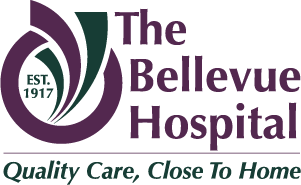AS A PATIENT OF THE BELLEVUE HOSPITAL, YOU HAVE THE RIGHT TO:
- Considerate and respectful care in a clean and safe environment free from all forms of mental, physical, sexual or verbal abuse; and harassment, neglect, or exploitation.
- Participate in planning your care by being well-informed about your possible condition, diagnosis, treatment, prognosis, alternative treatment, complications, outcomes, and discharge plans in terms you understand. This will include the possible risks, benefits and anticipated outcomes of the procedures or treatments and to be informed of the anticipated outcomes, including unanticipated outcomes.
- Discuss this information with your doctor. You may include or exclude any person or family member in your health care discussions and decisions.
- Ask for a change of provider or second opinion.
- Know the names and roles of people treating you.
- Consent to or refuse care, treatment, or services, you understand, as permitted by
- law throughout your hospital stay.
- Privacy, comfort and dignity. We will work to protect your privacy and confidentiality at all times.
- Request and receive an explanation and an itemized copy of your bill that includes dates of service, and receive information on known financial resources for care; timely notice prior to changes in insurance coverage; and prior information regarding charges.
- Expect that treatment records are confidential unless you have given permission to release information or reporting is required or permitted by law. When the hospital releases records to others, such as insurers, it emphasizes that the records are confidential.
- Request pastoral care or spiritual counseling.
- Review your medical records in a timely manner and to have the information explained, except when restricted by law.
- Expect that we will give you necessary health services to the best of our ability. Treatment, referral, or transfer may be recommended. If transfer is recommended or requested, you will be informed of risks, benefits and alternatives. You will not be transferred until the other facility agrees to accept you.
- Know if this hospital has relationships with outside parties that may influence your treatment and care. These relationships may be with educational institutions, other health care providers, or insurers.
- Consent or decline to take part in research/educational projects affecting your care. If you choose not to take part, you will receive the most effective care the hospital otherwise provides.
- Be told of realistic care alternatives when hospital care is no longer appropriate.
- Know about hospital rules that affect you and your treatment and about charges and payment methods.
- Know about hospital resources that can help you resolve problems, concerns and/or questions about your hospital stay and care.
- Expect that all clinical health care decisions are based on your health care needs.
- Appropriate assessment and management of pain.
- Have a family member or advocate of your choice, and your physician notified promptly upon admission to the hospital and involved with your care, if desired.
- Know the hospital may take pictures, video or other images for identification, diagnosis, or treatment; however, must receive permission for any other purposes.
- Access protective and advocacy services including notifying government agencies of neglect or abuse.
- Be free from restraints and seclusion of any form not medically necessary or used as a means of coercion, discipline, convenience or retaliation by staff.
- File a grievance.
- Formulate an Advance Directive and to appoint a surrogate to make healthcare decisions and to receive care whether or not an Advance Directive has been formulated, and have your end-of-life decisions honored.
- Have your family given an opportunity for fully-informed consent about organ and tissue donation.
- Have effective communication you understand, appropriate to age, language and culture; use of interpreters or translation services; aids for those with cognitive or physical impairments; and telephone and mail service as appropriate.
- Have your visitors receive full and equal visitation privileges consistent with your preferences and to inform you of any clinically necessary restrictions on visitation. And your right to withdraw or deny this consent at any time while providing the hospital notice of these changes.
WE CONSIDER YOU A PARTNER IN YOUR HOSPITAL CARE.
When you are well-informed, participate in treatment decisions and communicate openly with us and your doctor, you help make your care as effective as possible. To assist in improving communications, we also offer translation services free of charge.
- The Bellevue Hospital works to provide care efficiently and fairly for all patients and for our community.
- All patients will receive impartial access to treatment or accommodations that are available and medically indicated regardless of race, ethnicity, sex, marital status, disability, age, language, culture, sexual orientation, religion, social economic status, gender identity or expression, or source of payment for care.
- We encourage respect for your personal values, beliefs and preferences; as well as the psychosocial, spiritual, and cultural values of each individual.
- The Hospital’s Administrative Team is available to answer questions and address concerns about your hospital stay. They will help you if you do not receive a satisfactory response to your concern or problem from our staff. If you wish to voice or file formal complaint or grievance: Call Ext. 4200 or the operator “0”.
- Should you wish to discuss your concerns with an agency outside the hospital, you may contact the Ohio Department of Health at 1.800.342.0553 or 614.466.7217; Medicare and Medicaid Services at 1.800.589.7337 or 216.447.9604; The office of Civil Rights or other state federal reporting agencies or The Joint Commission at 1.800.994.6610.
- If you encounter situations or circumstances that raise legal or ethical concerns, call Administration at Ext. 4200, or the Confidential Compliance Hotline at 1.800.882.4545.
